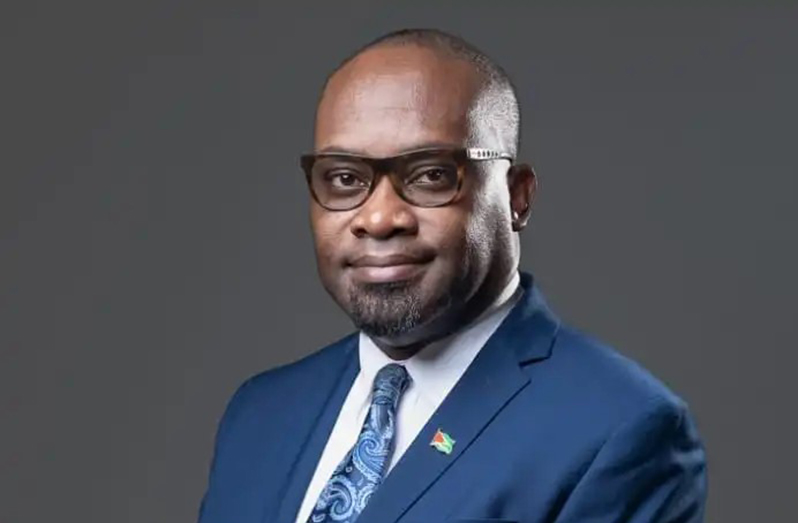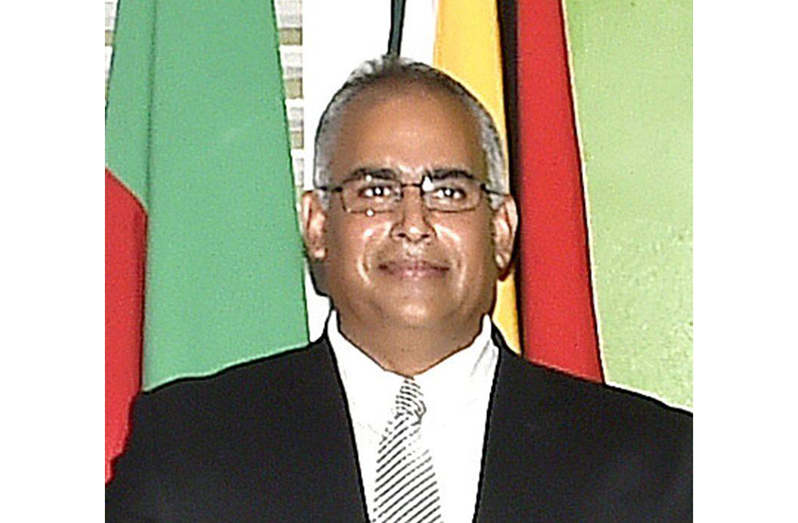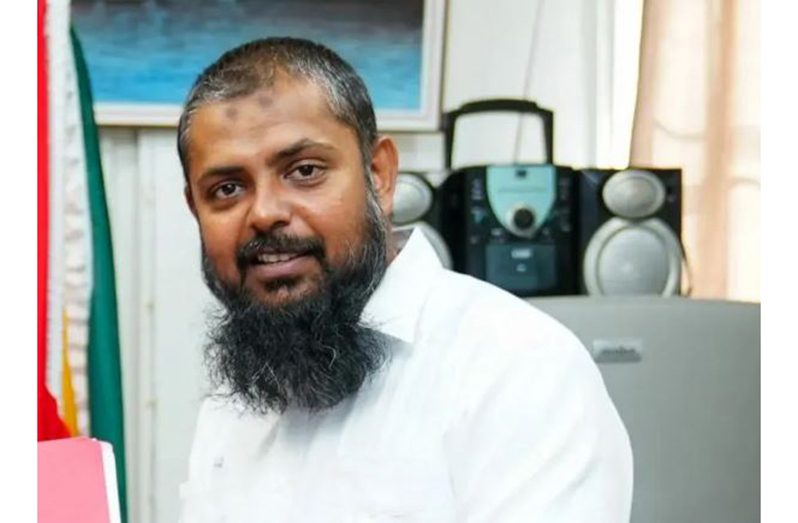-says GTU resorting to industrial action was ‘shocking,’ given 2021-2023 salary increases, ongoing discussions between gov’t, union
By Feona Morrison
WHEN the Guyana Teachers’ Union’s (GTU’s) case against the Education Ministry continued at the Demerara High Court on Friday, Chief Education Officer (CEO), Saddam Hussain maintained that there were political motives behind the nationwide strike action.
The strike, which disrupted the education sector for weeks, had seen teachers across the nation demanding better pay, improved working conditions and increased benefits.
The Guyana Trades Union Congress (GTUC) has been granted permission by Justice Sandil Kissoon to join the case mounted by its member union.
The GTUC’s attorney, Roysdale Forde, SC, questioned Hussain on Friday during cross-examination regarding an open letter he sent to the headteachers and teachers, in which it was mentioned, among other things, that the GTU was unduly influenced by its General Secretary, Coretta McDonald, an Opposition Member of Parliament (MP).
When Forde asked if he had approval from Education Minister Priya Manickchand or the ministry’s Permanent Secretary Shannielle Hoosein-Outar to issue the missive, the CEO replied no and said he was not aware if they knew he had sent it out.

When Forde pressed Hussain for the rationale behind his conviction that the GTU was under the influence of its General Secretary, he responded, “I could think of no other reason why a strike was being called. In 2021, 2022and 2023, pay increases were given and there was no strike.
“So, I do not understand now, in February, why there is a strike when in December [2023] when the pay increase was given. I felt and I still do, that that was the motive of the strike, that it was political in nature,” the senior education official insisted.
When the GTUC’s attorney asked Hussain if he was aware of the Guyana Agricultural and General Workers’ Union (GAWU), he responded in the positive and said he has “heard of” Seepaul Narine, the president of that union and a current member of parliament for the ruling People’s Progressive Party (PPP).
“Do you know that since 2020 to 2023, GAWU on more than one occasions strike [sic] against the government,” Forde questioned Hussain. He answered, “I’ve seen it in the news, yes.”
Justice Kissoon stepped in at this point and questioned Forde about the relevance of his query after objections were raised by attorney Darshan Ramdhani, KC, lawyer for the Attorney General—the lone respondent in the GTU’s application.
Forde then informed the judge that the purpose of his enquiry was to demonstrate that Hussain’s assertion that McDonald had influenced the strike was “unreasonable.”
Hussain was then questioned by the Senior Counsel about whether he thought that GAWU was on strike for political reasons in opposition to the very government that Narine works for.
“I don’t know if they [the strikes] were. I know the circumstances with the Ministry of Education, the Government of Guyana and the GTU. We [GTU and the Education Ministry] were talking…on the 31st January we spoke,” CEO Hussain explained.
CONSTANT ENGAGEMENTS
Hussain said that the GTU’s decision to go on strike was “shocking,” because the government had been engaging with the union on matters that were affecting teachers. He made it clear that the GTU should have ended talks with the government if it wanted conciliation and arbitration.
Forde referred Hussain to his Affidavit in Defence, where he stated that he was informed by his lawyers that the Education Ministry’s decision to deduct union dues from teachers’ pay and send them to the GTU was voluntary. “Did you consult with the records on the agency’s relationship between the Ministry of Education and the GTU?” he quizzed Hussain.
After Hussain said “yes,” Forde asked to see the documents.
Hussain replied that he could produce them and requested some time from the court to look for the paperwork in his “very big” office.
“I will make all efforts to try to find it,” the CEO assured Justice Kissoon.
Forde said that the Labour Ministry should have a copy of the document if Hussain is unable to locate it, because the ministry is legally designated as the custodian of certain documents.
Given this, the judge requested that Dhaneshwar Deonarine, the Chief Labour Officer, submit the document. The document is known as the 1983 Agency Agreement.
Once more, Ramdhani expressed concern about the pertinence of Forde’s request.
He said that it was decided that cross-examination would focus on collective bargaining rather than union dues. In response, Forde stated that the subject of union dues is still a “live issue.”

Forde’s viewpoint was supported by Justice Kissoon, who said that the court is being asked to make a decision regarding union dues.
Approximately $2 billion collected from teachers by the GTU is unaccounted for, given the fact that the books of the union have not been audited by the Auditor General’s office over the last 35 years.
The Deeds and Commercial Registries Authority has revealed that the GTU last filed its financial returns 20 years ago. While alluding to these at an earlier court hearing, Attorney General Anil Nandlall, SC, had made it clear that the GTU’s conduct constitutes a criminal offence in respect of every one of its executives.
He said the union has been unable to account for the funds or provide a public explanation for the non-filing of its yearly returns. As such, he had questioned on what basis should the government continue deducting dues from teachers’ salaries and remitting them to the union.
Attorneys will make oral submissions when the case continues on April 10.
Teachers went on strike on February 5, according to the GTU, because the government would not meet with the union on several issues, including the negotiation of wages, salaries, allowances, and better working conditions for teachers.
This is despite the fact that the Ministry of Education has satisfied more than half of the 41 proposals made by the GTU for better working conditions in just three years.
Government officials have also challenged the union’s claims by highlighting that discussions are ongoing to satisfy the other requests. Since the requirements for conducting a strike have not been satisfied, the government has already declared that the strike action is unlawful.
On March 4, following a court-ordered mediation, the GTU called off the protest and agreed for the striking teachers to return to their classrooms. However, on March 12, talks between the GTU and the Education Ministry broke down again after the ministry upheld the government’s position that discussions surrounding salary increases should be from 2024 onwards.



.jpg)








